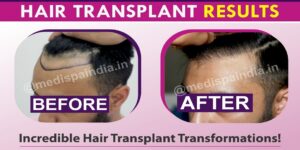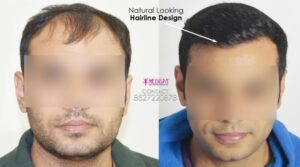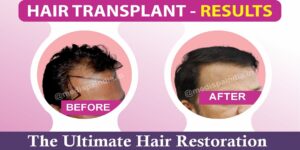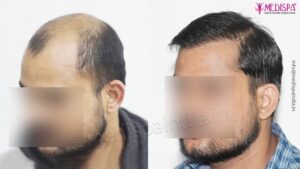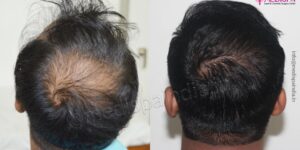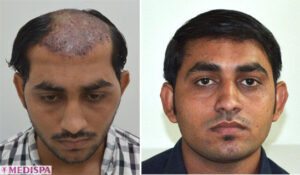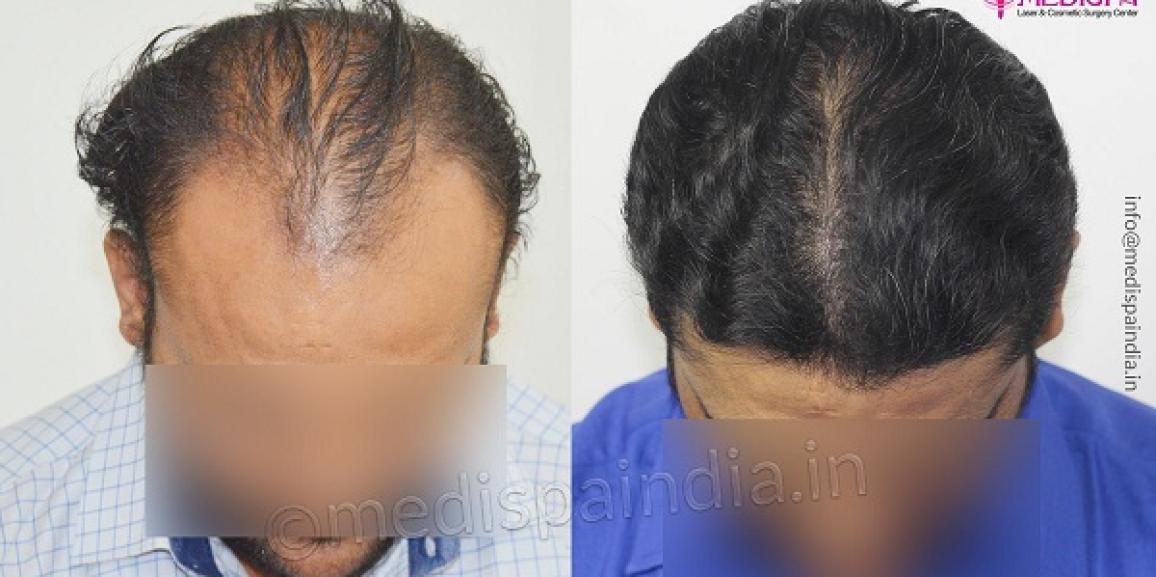
A small operation known as a hair transplant includes carefully selecting hair grafts from the donor region to be placed in the targeted bald area. When compared to other treatment options for the hair loss problem, hair transplant has emerged as the ultimate and best solution.
Since many years ago, hair transplant in Jaipur has gained attention. Few of the best hair transplant doctors in the world are located in the city. Despite the excellent services provided at a few clinics in the city, the hair transplant cost in Jaipur is very reasonable. A handful of the hair transplant doctors in Jaipur are highly regarded for offering the best hair transplants in the world, thus price is not the only factor driving hair transplant tourism to Jaipur.
The effectiveness of the hair transplant process depends on the capabilities offered by the clinic and the skills, experience, and knowledge of the surgeon. The aftercare you perform following the hair transplant treatments is another crucial factor that cannot be ignored for a successful hair transplant.
How should the short-term side effects of the hair transplant be treated?
The surgical techniques used for hair transplants are minimally invasive and result in no post-procedure morbidity. After the treatment, there may be a few short-term adverse effects, but these usually go away on their own within a few days. By rigorously adhering to the recommendations made by your doctor, these issues can be avoided.
- Swelling: The forehead and maybe the brows will swell following a hair transplant. With minor interventions, it goes away on its own in a few days. When sleeping, the patient’s head should ideally be at a 45-degree angle. It is advisable to use the headband for at least two days, two hours every day.
- Itching: Itching is a normal adverse effect of hair transplantation and usually goes away within a few days. Regular scalp cleansing is required, and your doctor may advise applying the prescribed lotion.
- Slight discomfort: Minor pain during hair transplant procedures is a possibility. The pain is often tolerable, but if you want to lessen it, follow the doctor’s recommendations and take medicines.
- Scalp pimples: While they may worry patients, scalp pimples are a healthy indication since they signal the beginning of the hair development cycle.
- Numbness: Numbness does not require a treatment plan and can be resolved on its own in a few months.
You may maintain healthy hair growth after a hair transplant by doing the following:
- Strict compliance with postoperative instructions: The patient will get instructions after the surgery that must be carefully followed in order to achieve the optimum outcomes. Hair transplantation is a risk-free technique with little adverse effects, but to ensure the procedure’s success and avoid any problems, adequate aftercare must be followed for at least 10 days. There are a few dos and don’ts that are suggested following the treatment in order for the benefits to endure over the long term.
- Hygiene upkeep: The patient is given thorough advice on how to maintain good hygiene at the recipient location following the hair transplant in order to receive the greatest outcomes. The patient is scheduled for a professional hair wash the day after the hair transplant procedure, with self-washing to follow on the fifth day. The patient should regularly wash their hair as instructed by the surgeon after the fifth day. Applying the advised lotion is necessary to keep the recipient area clean. Patients are urged to put on loose-fitting hats to aid in the integration of the recently transplanted follicles.Care must be used when putting on and taking off the cap to avoid touching the recipient area for a few days. Avoiding swimming, hard exercise, and sweat-producing outdoor activities is important for maintaining good hygiene. Additionally, for the first few days, all contact with the recipient region should be prohibited. Overall, keeping oneself clean is crucial for avoiding sickness and guaranteeing the finest hair growth.
- Diet: Eating healthily is essential to leading a healthy life. Following a hair transplant, you must maintain a healthy diet that encourages the growth of hair in an environment full of beneficial elements. You should include vitamins C, A, D, iron, and zinc in your diet since these are essential nutrients that are excellent for hair growth.
- Massage: Due to the risk of infection, it is not recommended to touch the recipient’s area during the first few days. After 9–10 days following a hair transplant, patients are advised to gently massage the recipient area to remove any scabs or flakes that have developed around the newly implanted hair follicles because they might obstruct the growth of underlying follicles. Rubbing the area after the first 10 days following hair transplantation can improve blood circulation, which will aid in the area’s development and recovery.
If you have any more inquiries, you can talk to a doctor at a Medispa in Delhi or Jaipur. We would be delighted to assist you in realizing your desire to undergo a hair transplant treatment successfully.

